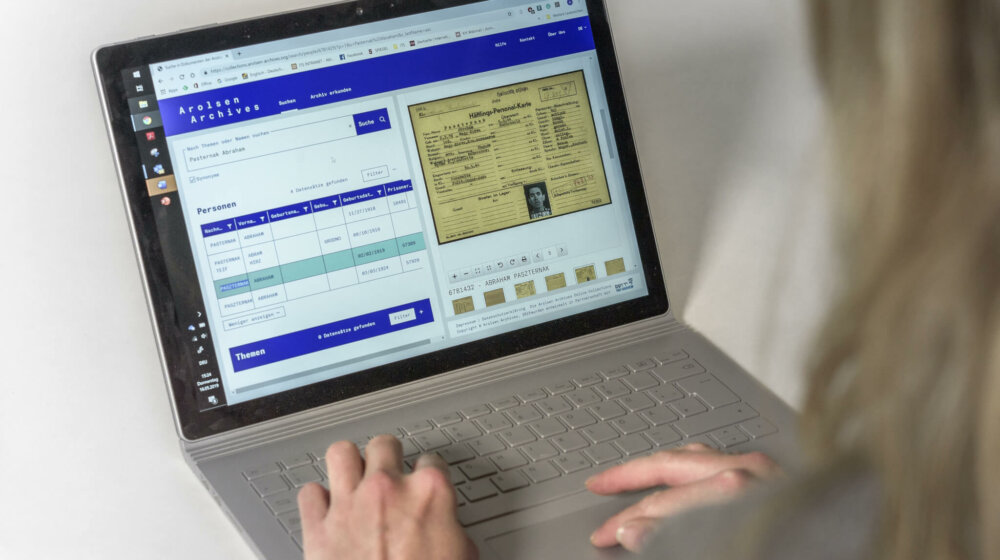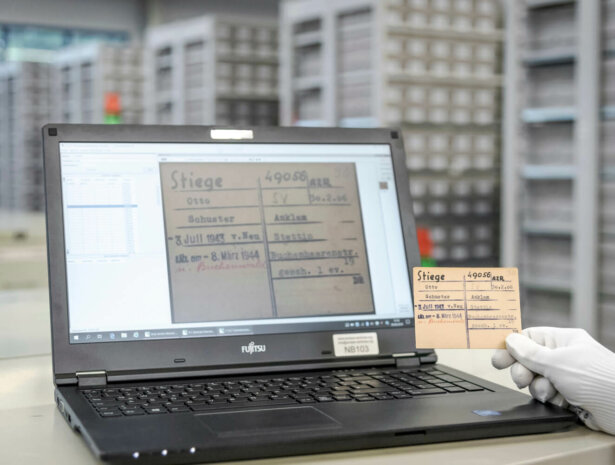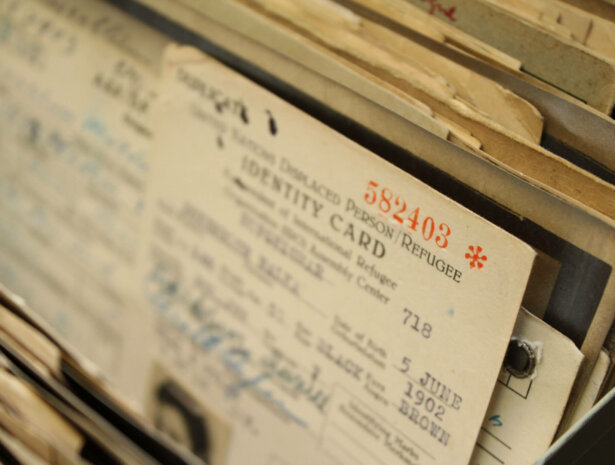

As part of the World’s Documentary Heritage, the largest archive on the victims of Nazi persecution should be accessible to as many people as possible. This is why the Arolsen Archives are publishing more and more of their holdings online. It is already possible for anyone to conduct research conveniently from anywhere – academics, members of the families of victims of Nazi persecution, people involved in educational projects and any other interested parties.
Please note the following when you search in the online archive: even if you do not get any search results, documents may still exist – or there may be more documents than those listed in the results. There are two reasons for this. Firstly, only some parts of the holdings can be viewed online. Secondly, some documents are only available in scanned form, so the search function does not yet cover the full content. This applies to lists of names from concentration camps, for example.
To the Online ArchivesWhich of the 30 million original documents are already available online? Primarily those documents which are of particular public interest are already online, such as documents from concentration camps and ghettos. Another criterion is how well the collections have been prepared and how searchable they are. Documents on death marches can be searched using maps, for example – a practical research function that is helpful for regional commemoration and educational projects, amongst other things.
The online archive focuses on the following themes:

Geo-referenced documents help you search for information about the death marches: Find locations mentioned in the documents in a map view, and use the map to find the documents for a specific location.
You can access the photos of prisoners’ personal effects here too and research the names and nationalities of people who were stripped of their personal belongings when they were imprisoned.
The general inventory is an overview of the collection of the Arolsen Archives. If you want to find information on or do research on topics related to either the Nazi or the post-war period, you can find out here which topics are covered by the collection. It is particularly worthwhile searching here if you want to find out more about documents that are not yet available in the online archive.

Did you know that the Arolsen Archives have 50 million reference cards with information on 17.5 million people? And that this makes them a truly unique memorial made of paper and documenting Nazi crimes and their consequences? Other interesting information on the Central Name Index and other special collections of the archive can be found here.
The best thing to do is to send an inquiry to the Arolsen Archives. Because even if your search does not produce any results, documents on the subject may still exist, as only some parts of the collection are available in the online archive. Another reason for the lack of search results could be that some documents are only available in scanned form. If this is the case, the contents of the file concerned are not searched. This applies to lists from concentration camps, for example. The process of indexing the documents to improve usability is already underway, but this is an enormous task that will take many years to complete. However, it was important to us to make documents on the following subjects publicly available as quickly as possible: Nazi persecution, Holocaust survivors, victims of political persecution, members of the resistance, long-forgotten victim groups such as Sinti and Roma and the forced laborers of the “Third Reich”.
Almost all documents related to concentration camps are perpetrator documents. This means that they were created by and used by National Socialists in concentration camp administrations. Most notably, the information given on the physical characteristics of the inmates or on the reasons for their imprisonment is racist and degrading. So the information in the documents must be viewed extremely critically. You must be aware of this when you work with them. The e-Guide can help you to understand the documents in their context. It contains simple and interactive explanatory information on all the common types of document: who created the documents and why, what information do the documents contain and what is important to consider when dealing with the documents. You can find the e-Guide here.
Every member state of the International Committee of the Arolsen Archives has the right to hold a copy of our complete digital holdings and can make this copy accessible. This means that research cannot only be carried out in Bad Arolsen, but also abroad. The copies are updated on an annual basis and are held by the following institutions:
The same terms of use apply to the use of the online archive as for visiting the Arolsen Archives. The International Committee, as the highest governing body, has defined these terms of use. They do not comply with German or other national archive law.
Please note that the online archive contains sensitive data on the victims of National Socialist persecution. This data may include information about religious affiliation, family background, health, sexual orientation and world view, membership of trade unions or political parties and also criminal records.
All users of the online archive are personally responsible for complying with data protection rights and other laws. This includes the interests of other people who are affected as well as generally accepted practices relating to personal data. The Arolsen Archives cannot be held responsible for publications which result from the use of the collections.
Please contact us if you, as a relative of a victim of persecution, for example, do not consent to the publication of certain personal data.